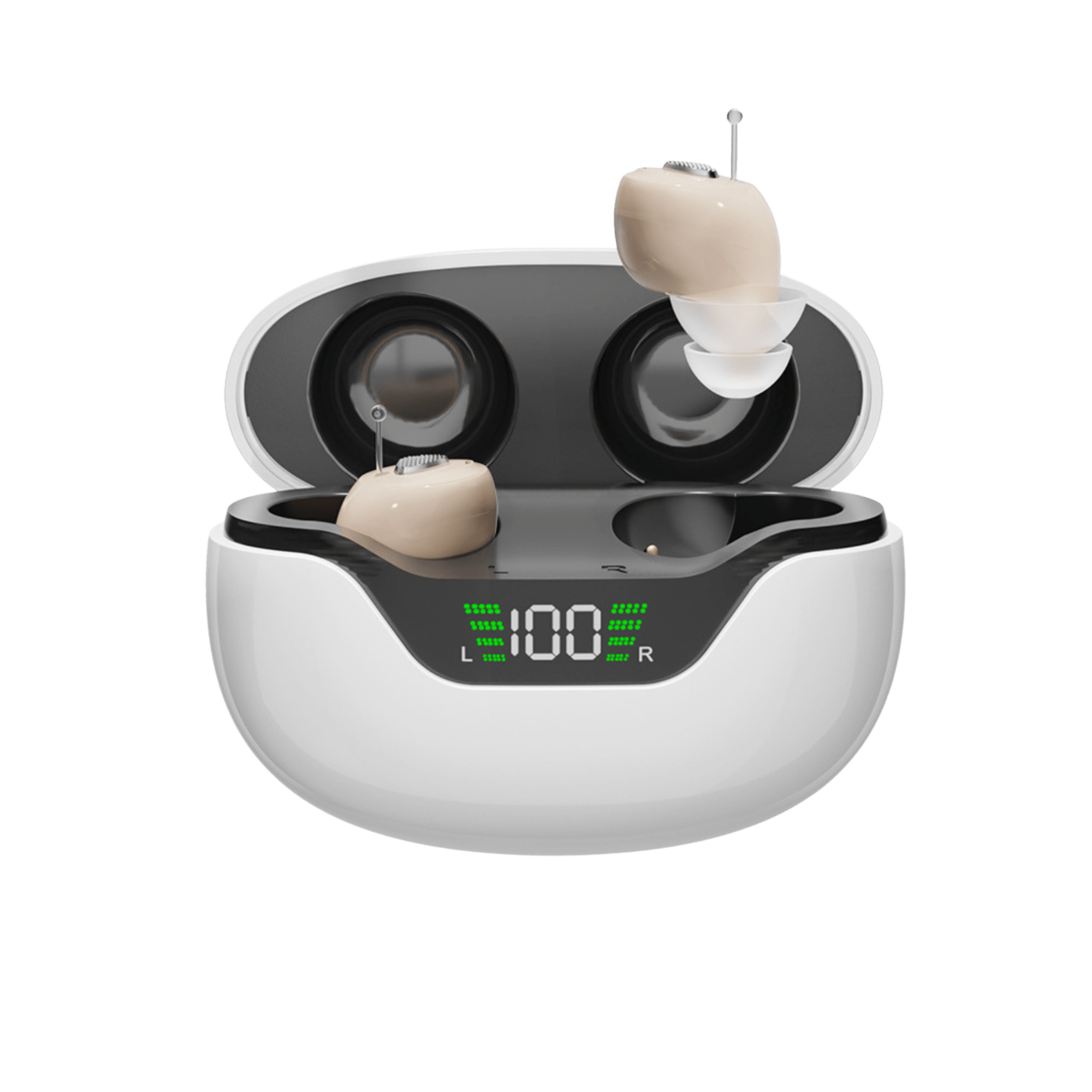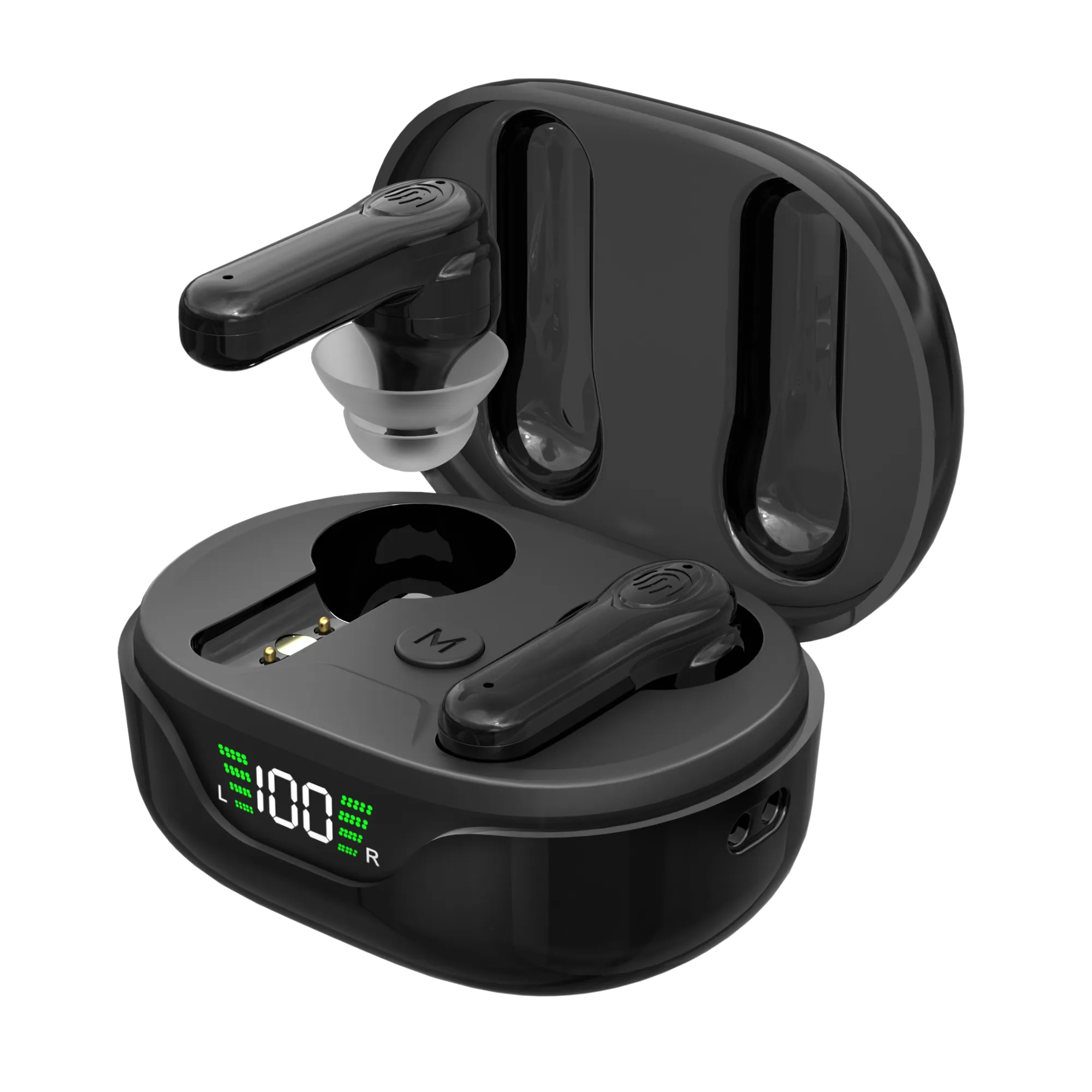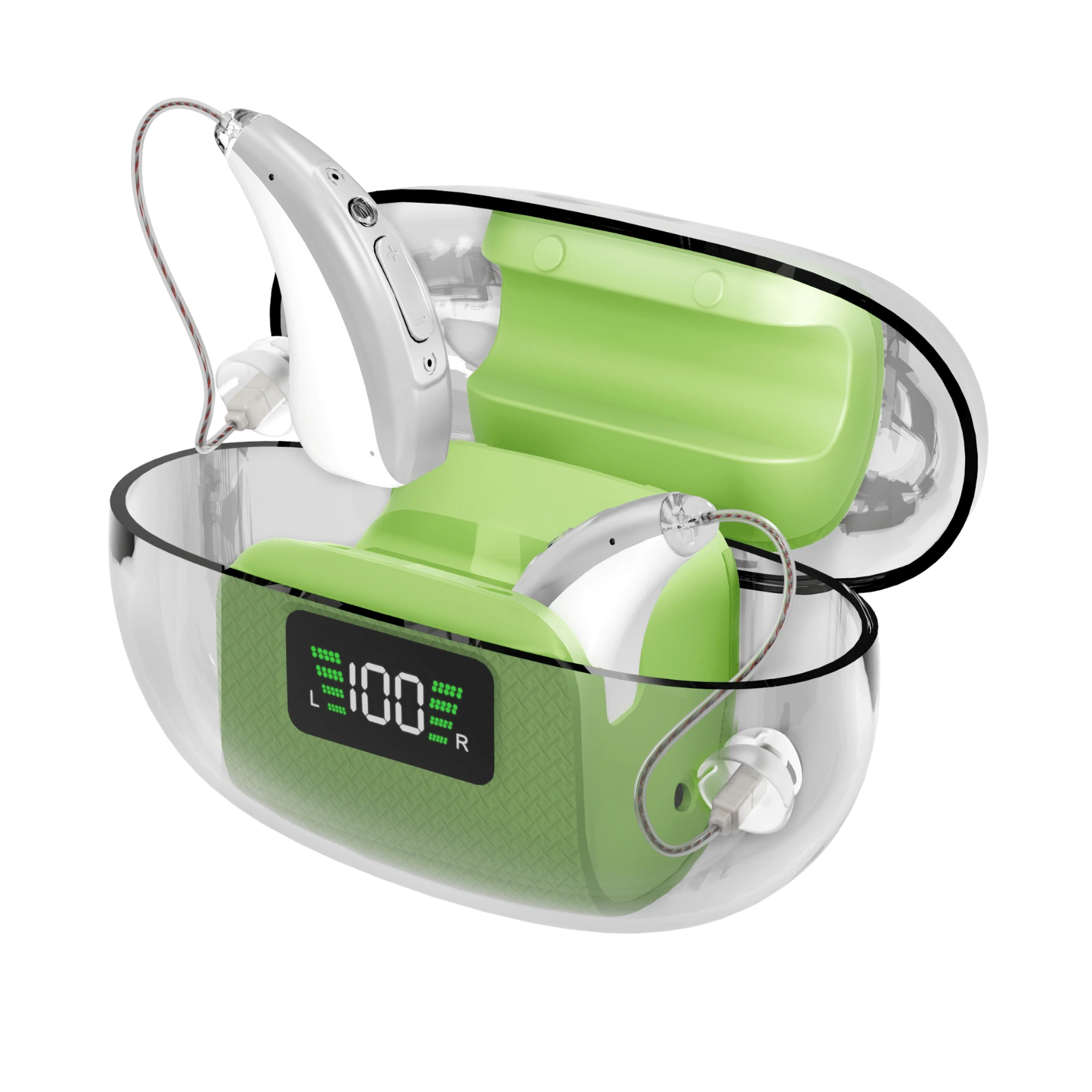What to Do When Hearing Aids Don't Work: Troubleshooting and Solutions
Hearing aids are amazing tools that can make a big difference in the quality of life for people who have trouble hearing. They make sounds louder, make speech easier to follow, and improve communication. But sometimes hearing aids don't work as planned or don't give the benefits that were hoped for. In this piece, we'll look at some of the most common reasons why hearing aids don't work as well as they should, and we'll also talk about troubleshooting and possible solutions.
Why hearing aids sometimes don't work
Not enough sound amplification: One of the main jobs of hearing aids is to make sounds louder. If you find that your hearing aids don't make sounds loud enough, it could mean that something is wrong with the settings or code. If the sound isn't amplified well enough, it can be hard to understand words and hear sounds around you.
Feedback or whistling happens when sound that has been boosted gets back into the microphone and makes a whistling or buzzing sound. This problem could happen if the hearing aid doesn't fit right, if earwax is blocking the sound output, or if the settings on the device need to be changed.
Sound that is muffled or distorted: Hearing aids should make sounds that are clear and natural. If you hear sounds that are faint or distorted, it could mean that there is a problem with the hearing aid's microphone, receiver, or ability to process sounds. A growth of earwax or damage to the parts of the hearing aid could be to blame.
Discomfort or irritation: If your hearing aids make your ears feel uncomfortable, hurt, or irritated, it could be a sign that they don't fit right, that you're sensitive to the materials used, or that you're allergic to them. It's important to take care of any pain right away so that hearing aids can be worn easily.
Power or battery problems: If your hearing aids won't turn on or if the batteries run out quickly, it could be because the batteries are old or of poor quality. Power problems can also be caused by bad connections or problems with the device's power sources.
Steps to Take If Your Hearing Aids Aren't Working
If your hearing aids aren't working right, try the following steps to fix them before going to a professional:
Check the Batteries: Make sure the batteries are in the right way and that they have enough power. If you need to, put in new batteries and make sure they work with your hearing aids. Check for rust and clean the battery contacts.
Check the Volume and Settings: Make sure the volume is set correctly and that any other features, like noise reduction or program settings, are set correctly for your listening surroundings. Refer to the user instructions or talk to someone who works in hearing care for help.
Clean the Hearing Aids: Clean your hearing aids regularly to get rid of any earwax or dirt that might be blocking the sound outlet or microphone. Use a soft, dry cloth or a tool that came with your hearing aid to clean it. If you are not told to, don't use water or cleaning products.
Check for Blockages: Look at the hearing aids to see if there are any obvious blocks, like dirt or earwax, that could be stopping them from working. Use a cleaning tool or a professional cleaning service, if needed, to gently remove any clogs.
Make sure the hearing aids are in the right place and fit well. Check that the hearing aids are in the right place in your ears and that they fit well. If you aren't sure where to put the device, ask a hearing care provider for help.
Some hearing aids have filters or wax guards that need to be changed on a frequent basis. If you hear less sound or a blockage, check to see if the filters or wax guards need to be changed according to the directions from the manufacturer.
Do a Factory Reset: If nothing else works, some hearing aids can be set back to how they were when they were first made. This step should be done with care, because it could delete any choices or programs that you have made yourself. For directions on how to do a factory reset, check the user manual or call the hearing aid maker.
When to get help from a professional
Even though fixing steps can fix some small problems, some problems may need to be fixed by a professional. In the following cases, you might want to talk to a hearing care professional or the company that made your hearing aid:
Problems That Don't Go Away: If the problem keeps happening after you've tried to fix it, you should talk to a hearing care provider. They know how to figure out and fix more complicated problems.
Physical Damage: If your hearing aids are broken because of an accident or because you didn't handle them properly, you may need to have them fixed by a professional. Don't try to fix the gadgets yourself, because you could make them worse.
Uncomfortable Fit: If your hearing aids continue to hurt, itch, or make you feel uncomfortable, you should talk to a hearing care expert. They can see how well it fits and make any changes that are needed or suggest other options.
Technical Problems: If you think your hearing aid is broken in a way that can't be fixed with simple troubleshooting, call the manufacturer or your hearing care professional for help. They know how to find the cause of technology problems and have the tools to fix them.
Conclusion
When hearing aids don't work the way they should, it can be annoying and make it hard to talk to people. By following fixing steps, you can fix small problems and maybe even get your hearing aids to work again. But if you have problems that keep coming back, if your hearing aid is damaged, if it doesn't fit right, or if it doesn't work right, you need to get help from a hearing care professional or the hearing aid's maker.
Remember that your hearing aids need regular care, proper cleaning, and professional checks to last as long as possible and work as well as possible. With the right help and direction, you can get through problems and enjoy the benefits of better hearing that your hearing aids give you.
By the way;
To learn everything you need to know about how to use hearing aids, you should read the information in the link given. So, if you find a solve to the problem above, clicking on the link below will give you the information you need about how to use hearing aids effectively.
https://pandahearing.com/blogs/hearing-aids/how-are-hearing-aids-used
Hearing aids are amazing tools that can make a big difference in the quality of life for people who have trouble hearing. They make sounds louder, make speech easier to follow, and improve communication. But sometimes hearing aids don't work as planned or don't give the benefits that were hoped for. In this piece, we'll look at some of the most common reasons why hearing aids don't work as well as they should, and we'll also talk about troubleshooting and possible solutions.
Why hearing aids sometimes don't work
Not enough sound amplification: One of the main jobs of hearing aids is to make sounds louder. If you find that your hearing aids don't make sounds loud enough, it could mean that something is wrong with the settings or code. If the sound isn't amplified well enough, it can be hard to understand words and hear sounds around you.
Feedback or whistling happens when sound that has been boosted gets back into the microphone and makes a whistling or buzzing sound. This problem could happen if the hearing aid doesn't fit right, if earwax is blocking the sound output, or if the settings on the device need to be changed.
Sound that is muffled or distorted: Hearing aids should make sounds that are clear and natural. If you hear sounds that are faint or distorted, it could mean that there is a problem with the hearing aid's microphone, receiver, or ability to process sounds. A growth of earwax or damage to the parts of the hearing aid could be to blame.
Discomfort or irritation: If your hearing aids make your ears feel uncomfortable, hurt, or irritated, it could be a sign that they don't fit right, that you're sensitive to the materials used, or that you're allergic to them. It's important to take care of any pain right away so that hearing aids can be worn easily.
Power or battery problems: If your hearing aids won't turn on or if the batteries run out quickly, it could be because the batteries are old or of poor quality. Power problems can also be caused by bad connections or problems with the device's power sources.
Steps to Take If Your Hearing Aids Aren't Working
If your hearing aids aren't working right, try the following steps to fix them before going to a professional:
Check the Batteries: Make sure the batteries are in the right way and that they have enough power. If you need to, put in new batteries and make sure they work with your hearing aids. Check for rust and clean the battery contacts.
Check the Volume and Settings: Make sure the volume is set correctly and that any other features, like noise reduction or program settings, are set correctly for your listening surroundings. Refer to the user instructions or talk to someone who works in hearing care for help.
Clean the Hearing Aids: Clean your hearing aids regularly to get rid of any earwax or dirt that might be blocking the sound outlet or microphone. Use a soft, dry cloth or a tool that came with your hearing aid to clean it. If you are not told to, don't use water or cleaning products.
Check for Blockages: Look at the hearing aids to see if there are any obvious blocks, like dirt or earwax, that could be stopping them from working. Use a cleaning tool or a professional cleaning service, if needed, to gently remove any clogs.
Make sure the hearing aids are in the right place and fit well. Check that the hearing aids are in the right place in your ears and that they fit well. If you aren't sure where to put the device, ask a hearing care provider for help.
Some hearing aids have filters or wax guards that need to be changed on a frequent basis. If you hear less sound or a blockage, check to see if the filters or wax guards need to be changed according to the directions from the manufacturer.
Do a Factory Reset: If nothing else works, some hearing aids can be set back to how they were when they were first made. This step should be done with care, because it could delete any choices or programs that you have made yourself. For directions on how to do a factory reset, check the user manual or call the hearing aid maker.
When to get help from a professional
Even though fixing steps can fix some small problems, some problems may need to be fixed by a professional. In the following cases, you might want to talk to a hearing care professional or the company that made your hearing aid:
Problems That Don't Go Away: If the problem keeps happening after you've tried to fix it, you should talk to a hearing care provider. They know how to figure out and fix more complicated problems.
Physical Damage: If your hearing aids are broken because of an accident or because you didn't handle them properly, you may need to have them fixed by a professional. Don't try to fix the gadgets yourself, because you could make them worse.
Uncomfortable Fit: If your hearing aids continue to hurt, itch, or make you feel uncomfortable, you should talk to a hearing care expert. They can see how well it fits and make any changes that are needed or suggest other options.
Technical Problems: If you think your hearing aid is broken in a way that can't be fixed with simple troubleshooting, call the manufacturer or your hearing care professional for help. They know how to find the cause of technology problems and have the tools to fix them.
Conclusion
When hearing aids don't work the way they should, it can be annoying and make it hard to talk to people. By following fixing steps, you can fix small problems and maybe even get your hearing aids to work again. But if you have problems that keep coming back, if your hearing aid is damaged, if it doesn't fit right, or if it doesn't work right, you need to get help from a hearing care professional or the hearing aid's maker.
Remember that your hearing aids need regular care, proper cleaning, and professional checks to last as long as possible and work as well as possible. With the right help and direction, you can get through problems and enjoy the benefits of better hearing that your hearing aids give you.
By the way;
To learn everything you need to know about how to use hearing aids, you should read the information in the link given. So, if you find a solve to the problem above, clicking on the link below will give you the information you need about how to use hearing aids effectively.
https://pandahearing.com/blogs/hearing-aids/how-are-hearing-aids-used





